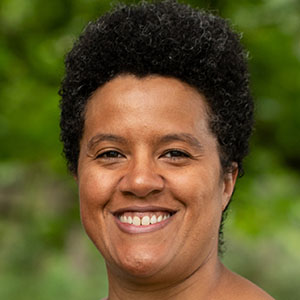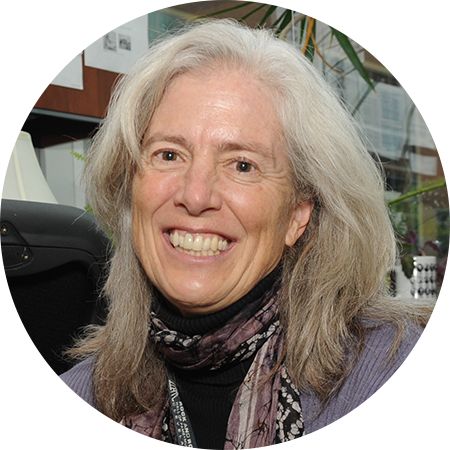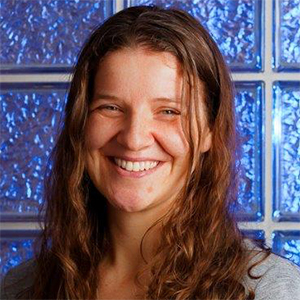Roundtable discussion: "Does genetic and genomic screening keep open the door to eugenics?"
Event Details
In December 2021, the National Human Genome Research Institute (NHGRI) hosted a historic symposium that addressed the history of eugenics and scientific racism and their complex legacies in the modern health sciences. The symposium illustrated the urgent need for more public discussion on the connection between existing and emerging genetic and genomic screening technologies and the legacies of eugenics.
Eugenics and scientific racism are immoral and pseudoscientific ideologies and practices that have historically been used to marginalize and dehumanize both individuals and groups. Those practices continue to harm people in the U.S. and worldwide, despite having been rejected by NIH, NHGRI and the scientific community.
Join us on Wednesday, May 25, as scholars and scientists answer audience questions and address the complexities surrounding historical and present-day eugenics and scientific racism in the context of existing and developing genetic and genomic screening technologies.
This will include characterizing the historical connections between the eugenics movement and genetic counseling, as well as charting the development of contemporary genetic counseling, reproductive choice and clinically informed decision-making.
Online
Recorded Video
Panelists

Dr. Eric Green is the director of the National Human Genome Research Institute (NHGRI) at the U.S. National Institutes of Health (NIH). He is the third NHGRI director, having been appointed by NIH director Dr. Francis Collins in 2009. Dr. Green has been at the Institute for more than 25 years, during which he has had multiple key leadership roles. He served as the Institute’s scientific director for 7 years, chief of the NHGRI Genome Technology Branch for 13 years and founding director of the NIH Intramural Sequencing Center for 12 years. For just over two decades, Dr. Green directed an independent research program that included integral start-to-finish roles in the Human Genome Project and groundbreaking work on mapping, sequencing, and characterizing mammalian genomes. Dr. Green earned his M.D. and Ph.D. degrees in 1987 from Washington University in St. Louis; coincidentally, the word “genomics” was coined in that same year. During his career, Dr. Green has authored and co-authored over 375 scientific publications.

Christopher Donohue is the historian of the National Human Genome Research Institute. He has edited or co-edited two journal collections since 2018. Two others, on Vitalism and the Contemporary Life Sciences with Charles Wolfe (for Springer Nature) and Perspectives on the Human Genome Project and Genomics with Alan Love (for Minnesota Studies in Philosophy of Science), are under review. A further volume for patterns of prejudice on “ Slavdom”, Genes and “Race Science”: Between Nation-Building and the Global Racial Imaginary is in preparation with Victoria Shmidt and Christian Promitzer. He is completing a book under contract for Central European University Press entitled " The Master Race in that Sense": Defenses of Eugenics and Sterilization after the Second World War.

Camisha Russell is an associate professor in the Department of Philosophy at the University of Oregon and a co-editor of Hypatia: A Journal of Feminist Philosophy. She specializes in bioethics, critical philosophy of race, and feminist philosophy. Her first book, The Assisted Reproduction of Race (Indiana University Press, 2018) considers the role of the race idea in practices surrounding assisted reproductive technologies and argues for the benefits of thinking of race itself as a technology. Other recent publications include “Meeting the Moment: Bioethics in the Time of Black Lives Matter” in the American Journal of Bioethics (2022), “Which Lives Matter in Reproductive Biomedicine?” in Reproductive Biomedicine & Society Online (2021) and “Eugenics" in The Routledge Companion to Philosophy of Race (2018). She is also the 2020-2021 recipient of the Baruch A Brody Award and Lecture in Bioethics.

Alexandra Minna Stern, Ph.D., is the Carroll Smith-Rosenberg Collegiate Professor of American Culture, History, and Women’s Studies and professor of obstetrics and gynecology at the University of Michigan. Much of her research has focused on the uses and misuses of genetics in the United States and Latin America. She is the author of the award-winning Eugenic Nation: Faults and Frontiers of Better Breeding in Modern America, 2d. ed. by University of California Press in 2015. She also is author of Telling Genes: The Story of Genetic Counseling in America (Johns Hopkins University Press, 2012), a Choice2013 Outstanding Academic Title in Health Sciences. Her most recent book,P roud Boys and the White Ethnostate: How the Alt-Right is Warping the American Imagination (Beacon Press, 2019) applies the lenses of historical analysis, feminist studies, and critical race studies to deconstruct the core ideas of the far right and white nationalism in the United States. Stern is the principal investigator of the Sterilization and Social Justice Lab, which uses mixed methods to study patterns and experiences of eugenic sterilization in the twentieth-century United States; this research has informed policy efforts to provide redress to survivors of compulsory sterilization. Stern has held numerous grants including from the National Endowment for the Humanities, National Institutes of Health and the Robert Wood Johnson Foundation.

Vardit Ravitsky is a full professor at the Bioethics Program, School of Public Health, University of Montreal and Senior Lecturer on Global Health and Social Medicine at Harvard Medical School. She is president of the International Association of Bioethics and Director of Ethics and Health at the Center for Research on Ethics. She is a 2020 Trudeau Foundation Fellow and Chair of the Foundation’s COVID-19 Impact Committee and Fellow of the Canadian Academy of Health Sciences and of the Hastings Center. She is a member of the Canadian Institutes of Health Research (CIHR) Advisory Board for the Institute of Genetics. She is also member of the National Human Genome Research Institute’s (NHGRI) Genomics & Society Working Group. She holds a Research-Creation Chair on the Re-appropriation of Maternity. Her research focuses on the ethics of genomics and reproduction and is funded by Canada’s leading funding agencies. She published over 180 articles and commentaries on bioethical issues.

Michael Rembis is the director of the Center for Disability Studies and an associate professor in the Department of History at The State University of New York at Buffalo. He has authored or edited many books, articles and book chapters. His research interests include the history of institutionalization, mad people's history, the history of disability and the history of eugenics. He is currently working on a book entitled Writing Mad Lives in the Age of the Asylum.

Joy Boyer has been a program official with the National Human Genome Research Institute (NHGRI) Ethical, Legal and Social Implications (ELSI) Research Program since 1996. As a program director in the NHGRI Division of Genomics and Society, Joy oversees a portfolio of research, training and career development grants related to the ethical, legal and social implications of genomic research. She coordinates the Centers of Excellence in ELSI Research (CEER) consortium and is the principal contact for ELSI Training grants (T32) program. She also participates in a variety of ELSI-related trans-NHGRI, trans-NIH and trans-HHS initiatives and programs, particularly initiatives focused on newborn and prenatal genetic screening.
Currently, Joy focuses on ELSI Research Program grants and initiatives related to genomics and sociocultural structures and values. These projects examine the foundational concepts and values that underlie and shape how individuals, families, communities and other social and cultural groups understand and use genomic information and technologies.

Lori Erby is program director for the Johns Hopkins University/National Institutes of Health Genetic Counseling Training Program, an associate investigator in the National Human Genome Research Institute’s Center for Precision Health Research and an adjunct associate professor in the Department of Health, Behavior and Society at the Johns Hopkins Bloomberg School of Public Health. She completed her genetic counseling training at the JHU/NIH Genetic Counseling Training Program and completed her doctoral training in Health, Behavior and Society at the Johns Hopkins Bloomberg School of Public Health with a focus on patient–provider communication. After serving as teaching and research faculty at the Johns Hopkins Bloomberg School of Public Health and working part-time as a genetic counselor in pediatric, prenatal and neurogenetics settings, Dr. Erby moved to NHGRI to join the leadership of the Genetic Counseling Training Program. Her research focuses on communication within the genetics/genomics context with a particular interest in research questions related to how variation in the process of communication in genetic counseling links to outcomes for underserved clients. She is currently the president-elect of the Association of Genetic Counseling Program Directors. In addition to her scholarship related to improving the genetic counseling communication process and evaluating best practices in genetic counseling training, Dr. Erby has written several chapters and research articles related to the intersection of genetic counseling practice and disability.

Rebecca Mueller is T32 post-doctoral fellow in the Ethical, Legal and Social Implications of Genetics and Genomics in the Department of Medical Ethics and Health Policy at the University of Pennsylvania where she also teaches ethics in the Masters of Science Genetic Counseling Program. Mueller completed her doctorate in the history and sociology of science at the University of Pennsylvania and her masters in genetic counseling at Arcadia University. Her book project, The Genome and the Biome: Cystic Fibrosis at Six Feet Apart, uses cystic fibrosis as a case study of novel diagnostic technologies, risk and sociality. Her T32 project investigates the impact of genetic diagnoses on individuals’ conceptions of time and the future.
Last updated: June 2, 2022
